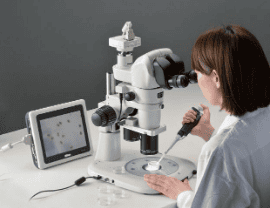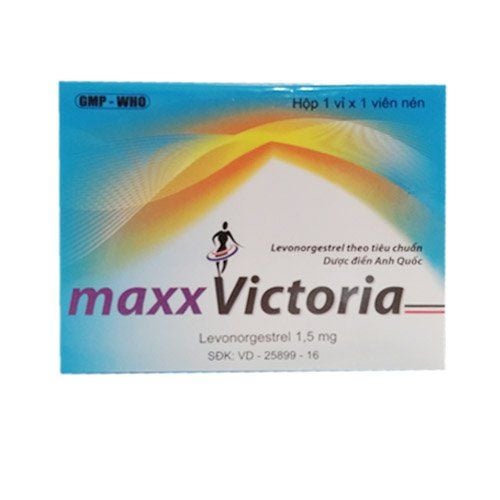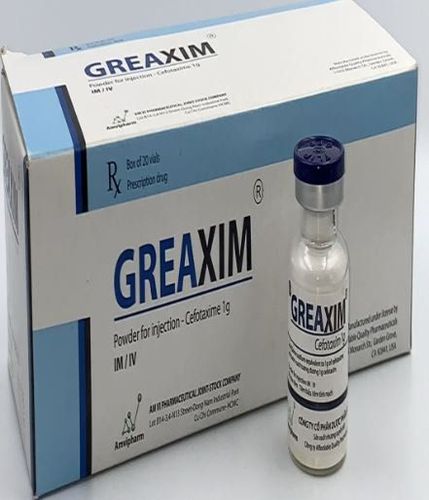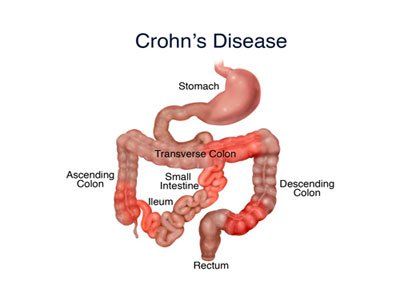This is an automatically translated article.
Posted by Master, Doctor Mai Vien Phuong - Department of Examination & Internal Medicine - Vinmec Central Park International General Hospital.
Crohn's disease is a type of chronic inflammatory bowel disease (IBD). This is considered a chronic condition, which means you will have it for the rest of your life. The exact cause of the disease is still unknown. Early detection and diagnosis from the early stages of the disease help you avoid serious complications and get better treatment.
1. Stages and progression of Crohn's disease
People with Crohn's disease often experience erratic ups and downs of symptoms. They may even go through periods of remission.
However, Crohn's is a progressive disease that begins with mild symptoms and gradually becomes more severe.
Stages of Crohn's are mild to moderate to severe. The earlier you treat and manage Crohn's disease, the more likely you are to reduce your risk of developing serious symptoms.
With mild to moderate Crohn's disease, you may experience diarrhea or abdominal pain, but you will not experience other symptoms or complications.
You can walk, eat and drink as usual and the disease has little effect on your quality of life. In some cases, you won't even need treatment.
If you have moderate to severe Crohn's disease, you may have diarrhea or abdominal pain along with other symptoms and complications. These may include fever or anemia. Treatments given to people with mild to moderate illness, such as anti-diarrheal medications, will not help relieve symptoms.
Severe stages of Crohn's disease are marked by symptoms that disrupt your daily life. You may have constant pain and discomfort, and you may have to go to the bathroom often. At this stage, inflammation occurs frequently, and your body tissues are at risk of permanent damage.
2. Early diagnosis is important to help prevent bowel damage
Your doctor may use several types of tests to make a diagnosis:
Blood tests can help your doctor look for certain signs of potential problems, such as anemia and inflammation. Stool tests can help your doctor detect blood in your digestive tract. Your doctor may order an endoscopy to get a better picture of the inside of your upper digestive tract. Your doctor may order a colonoscopy to examine the large intestine. Imaging tests like CT scans and MRI scans give your doctor more detail than the average X-ray. Both tests allow your doctor to see specific areas of your tissues and organs. Your doctor will likely take a tissue sample or biopsy during your colonoscopy or colonoscopy to get a closer look at your intestinal tissue. When your doctor has finished reviewing all the necessary tests and ruling out other possible reasons for your symptoms, they may conclude that you have Crohn's disease.
The doctor may order these tests again and again to look for diseased tissue and determine how the disease is progressing.
3. Treatment and management options
3.1. Medicine
Medicines can treat inflammation and prevent the body from attacking its own cells. Treatment options come in the form of:
Aminosalicylate that prevents inflammation Immunomodulators that prevent inflammation Biologic therapy to reduce the risk of inflammation Corticosteroids that lower the functioning of the immune system As your symptoms progress As you grow, your gastroenterologist may also recommend taking regular breaks to have a bowel movement. However, not all doctors agree with this measure.
Resting the bowels includes a strict liquid-only diet for several days. The goal is for the digestive tract to heal from inflammation and essentially rest. To prevent malnutrition, you may need intravenous injections.
Talk to your doctor before switching to a liquid diet.

3.2. Diet and supplements
While any stage of Crohn's disease can affect your nutritional intake, your risk of malnutrition is even more severe in the later stages.
At this point your doctor may recommend potential supplements including:
Calcium Iron, especially if you are prone to anemia Multivitamins Vitamin B12 Vitamin D Protein Low fiber diet may be recommended to prevent intestinal obstruction. It can also help reduce the occasional occurrence of diarrhea.
3.3. Analgesic
If you start to experience symptoms outside of the gastrointestinal tract, you may need more medicine to treat those symptoms.
You should avoid nonsteroidal anti-inflammatory drugs (NSAIDs) such as ibuprofen (Advil, Motrin), as these can make Crohn's disease worse. Instead, ask your doctor if you can safely take acetaminophen (Tylenol).
3.4. Surgery
Although treatment is consistent, you may need surgery if your symptoms become life-threatening. According to the Crohn's & Colitis Foundation, about 67 to 75% of all people with Crohn's will eventually need surgery.
Surgery cannot cure the disease, but it can help repair severely damaged tissue and remove blockages.
4. Colon cancer and other complications
Severe stages of Crohn's disease can put you at risk for colon cancer.
Ongoing inflammation and associated tissue damage can also lead to other complications, such as:
Fistula or abnormal tunnel between two organs Intestinal obstruction Anal fissure or small tear in the lining anus Gastrointestinal ulcers Malnutrition Dehydration Osteoporosis Hepatitis Hepatitis Gallbladder disease Frequent infections due to taking immunosuppressive drugs

5. Risk factors for Crohn's disease
You have a higher risk of developing Crohn's disease if you:
Have a family member with Crohn's Disease Have a family history of autoimmune diseases, even those without Crohn's disease Smoking are obese Eat a diet high fat diet Living in an urban or industrial area Conclusion
Untreated Crohn's disease can lead to other complications of the gastrointestinal tract, some of which can become permanent. Although there is no cure for Crohn's disease, medications and lifestyle changes can help control the condition. This is why it is so important to identify the disease at an early stage.
Vinmec International General Hospital is one of the hospitals that not only ensures professional quality with a team of doctors, modern equipment and technology, but also stands out for its examination, consulting and service services. comprehensive and professional medical treatment; civilized, polite, safe and sterile medical examination and treatment space.
Please dial HOTLINE for more information or register for an appointment HERE. Download MyVinmec app to make appointments faster and to manage your bookings easily.
Reference article: About Crohn's disease and ulcerative colitis [Fact sheet], Crohn's disease. (2020), Lichtenstein GR, et al. (2018). ACG Clinical Guideline: Management of Crohn's disease in adults.














